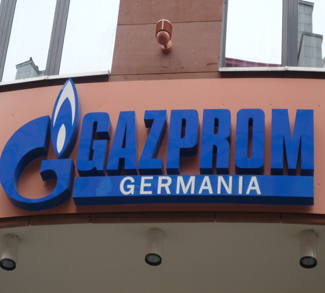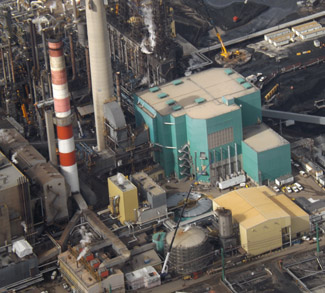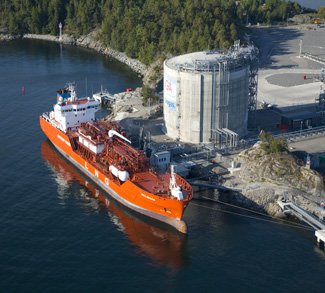The Many Faces of Energy Security
The term “energy security,” despite its pessimistic applications and loose definitions, is profligately used in policy circles and academic fields. Limiting disruptions of supply to broader definitions, which have political, economic, and/or environmental bearing, is common of energy security treatments. According to the UK Department of Energy and Climate Change, it is taken as a country’s ability to ensure that the “risks of interruption to energy supply, are low.”
Three dimensions of energy security should be underscored: physical security, price security, and geopolitical security. Optimum energy security is achieved by avoiding physical interruptions, “unnecessary price spikes due to supply/demand imbalances or poor market operation” and “undue reliance on specific nations so as to maintain maximum degrees of freedom in foreign policy.” While some cover energy security from the perspective of the consumer, the significance of energy dependence on supply-countries still tends to receive less coverage in the media.
The term frequently emerges within the geopolitical discourse of Europe and the European Union (EU), and the EU polity’s relationship with the Russian Federation. Energy security is a salient issue as it regards the geopolitical context of southeast Europe and the Black Sea region. Ukraine receives considerable attention because of its position between Russian and particular member states of the EU, making it a transit country – and one perceived with increasing unreliability as it provides Russia with its monopoly over supplies to much of the European market.
States and Energy
In early 2015, Gazprom head Alexei Miller announced that EU gas transit via Ukraine would be cut. South Stream was brought to a close by the EU Commission due to non-compliance with the EU’s energy laws. The EU’s gas disputes with Gazprom and the current Ukraine crisis, including the Crimea crisis of 2014, pro-Russian unrest and fighting in eastern Ukraine (subsequent political destabilization of Ukraine), and the implementation of Minsk II and its subsequent blocking, and strain on EU-US-Russia-NATO relations, has launched energy security into the highest levels of the EU’s political agenda due to its importance to every nation’s security. Similarly the flooding of the global oil market by Saudi Arabia has countries such as Iran and Russia struggling because it undermines them as lead exporters.
When speaking of state’s relationship with energy, reference is made to a supplier whose economy heavily relies on energy exports. A supplier’s economy is also heavily reliant on energy exports to a specific state or region. Energy importers usually have diverse energy portfolios, and are mainly dependent on one or few energy suppliers. Countries are also both large-scale energy importers and exporters. The first type of role in the energy relationship is complex; most large-scale energy exporters possess economies that are heavily dependent on those exports. Saudi Arabia’s position is unique because it is purely an energy exporter free from the dependency of exporting to a single destination.
Energy Powers in Flux
Saudi Arabia was at the forefront of the Organization of the Petroleum Exporting Countries’ (OPEC) decision in November 2014 to adhere to output targets rather than cutting back. Riyadh’s oil exports have soared by 30% since 2000 – currently standing at nearly 13 million barrels per day (bpd). By the end of 2014, new global economic conditions resulted in Iran’s oil revenues withering by 30%. April 14 marked China’s (PetroChina) highest crude oil exports since 2006 (approximately 750,000 tonnes of crude oil in March, or 177,000 bpd).
Energy, similar to humanitarian aid, is a means of achieving foreign policy aims. Those who do not need it are in a strong political position, while the ones who require or rely on it are condemned to adhering to the rules and ultimatums of suppliers. This is especially the case when it comes to gas, while oil is flexible in its transport methods. Oil can be transported across vast distances of waters by means of barges and tankers. Open-waters access enables states to freely purchase oil thereby allowing for the diversification.
Gas remains largely confined to being transported by pipelines and these pipelines cultivate dependence, and in some cases, interdependence. This interdependence is exemplified through the trade relations between the EU and Algeria. As of 2013, Algeria was ranked the EU’s third largest energy provider and rising oil exports accounted for the increased albeit tremulous partnership between the EU and Algeria. Reliance can be avoided but the cost of independence is high, and some countries cannot afford to pay it, while others are limited in their options due to geographic conditions.
Saudi Arabian oil giants such as Saudi ARAMCO (now Saudi Arabian Oil Company) have a firm grip over the global oil market, with the power to undermine other oil exporters around the world – Saudi oil was formerly under US control as Saudi ARAMCO was formerly the Arabian-American Oil Company. Nearly a 60% increase in its shares by 1974 placed the company in an exceptional position: it was able to take control of its business without having to enter into risky negotiations with the United States or compromise its own strategic interests. The company took full control in 1980. Although ARAMCO has not been nationalized, it has close ties to the government and indirectly imposes policies that are beneficial to Saudi Arabia. Some four decades ago, the company flooded the global market with the aim of crippling the Iranian economy. A similar act is now playing-out whereby the Russian economy is heavily impacted resulting in rampant inflation.
Russia’s Energy Assets
Russia’s power in Eastern Europe continued even after the collapse of the Soviet Union. In the absence of military projection, energy continued to feed Moscow’s appetite for power. This dynamic continues today. The relationship between Russia and the EU is based on mutual reliance. The Russia-Ukraine gas dispute in 2008-2009 affected 80% of European gas supplies delivered through pipelines passing through Ukraine.
Numerous countries experienced unexpected shortcuts in their gas supplies, which led to imperfections in the European energy security concept. The biggest problem facing the EU is that its constituent states lack energy diversity. While highlighting the shortcomings in the EU’s energy security, it reveals something far more significant about their partner, Russia, namely that Russia will use its pipelines as a political weapon in negotiations. This has been the case for years but pipeline politics has emerged once again with new gas routes not only reviving Russian rivalry with the EU and the West, but even greater strength than before.
Although Russia is able to boast the ability to export a tremendous amount of energy while claiming that the EU is in dire need of its exports, those same energy commodities require needy markets if Russia’s to benefit from them at all. About 88% of Russia’ total oil and some 70% of its gas exports reach European energy markets. These exports make-up a significant part of Russia’s federal budget revenue as oil and gas account for 52% of the total value.
The European energy market is also willing to pay relatively higher prices for both oil and gas. At the same time, the numbers provide Russia with its continued power instrument and for binding Russia to an indispensible partnership. Projects such as the North European Gas Pipeline (North Stream) were constructed with the aim of guaranteeing a continuous flow of energy to western EU member states and contributing to the diversification of energy supply in Western Europe.
However, while it appears that arrangements such as these would increase European energy security, in actuality an opposing situation emerges. The project avoided several countries, which resulted in “de facto loss in their leverage as a transit country, a status that was regarded as the main bargaining chip in the negotiations about prices and as insurance against vulnerability in relation to Russia. Both North and the planned but cancelled South Stream, weaken European energy security rather than strengthen it, enhancing Russia’s influence over Europe, and fostering insecurity within the EU.
Impact and Prospects
Energy security, and especially security of supply, is a decisive factor in Russian relations and will remain one until the EU is able to find ways of diversifying is supply sufficiently enough to create an asymmetric relationship with Russia in which they can act independently. While most EU member states are wealthy enough to at least begin to diversify their energy portfolios, the dependence of some countries heavily influences the available range of policy choices against Russia during such political challenges as the illegal annexation of Crimea, cultivating deep and destructive conflict in eastern Ukraine, and even similar forms of aggression like that witnessed in 2008 in Georgia. Thus, both the EU and Russia find themselves embroiled in a Gordian knot predicated on energy dependence and power leverage.
Energy security will continue to grow as a threat to national and regional security arrangements. West Africa already plays host to foundation of conflict and potentially future war labelled ‘climate wars’ in relation to Mali, Niger, and Nigeria fighting over waters of the Niger River basin and overpopulation stretching already-limited resources. Countries such as Russia and Saudi Arabia will continue to be regional powers, or at least considerably influential in the case of the latter, with significant resources coveted by Western states such as the United States and rising powers like China.
The EU will continue to search for energy efficiency and interconnection capacities as political defense, and will have to act in the interest of security of supply by such means as refining its multi-purchasing initiatives. Russia demonstrates dedication to export diversification practices even amid its commitment to a “Divide-and-Conquer” strategy, which proves injurious to the EU and itself. While the strategic relationship between Russia and the EU has yielded benefits in relaxing political tensions between the two in the past, the extent to which energy is used as a foreign policy tool remains a monumental challenge.
The opinions, beliefs, and viewpoints expressed by the authors are theirs alone and don’t reflect any official position of Geopoliticalmonitor.com.




